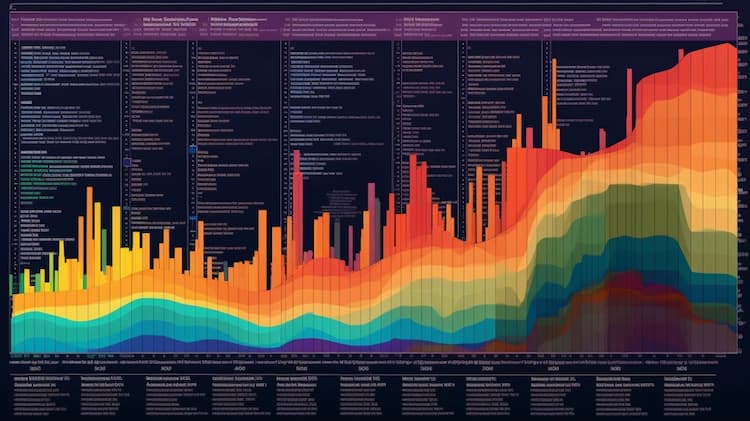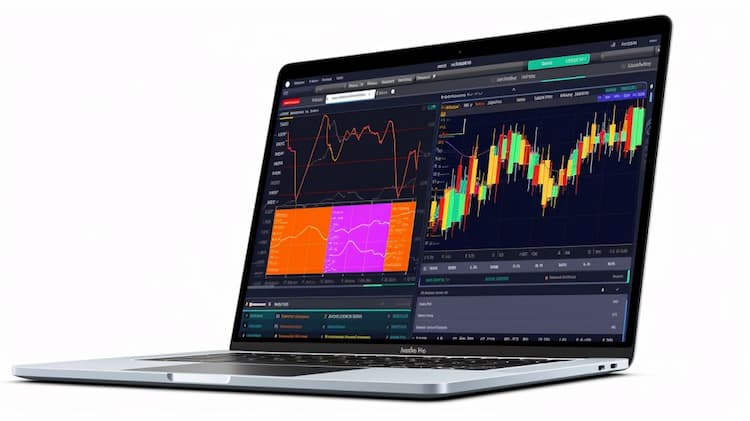
What is the IWD ETF ?
In the world of finance, Exchange-Traded Funds (ETFs) have gained tremendous popularity among investors due to their diversified and accessible nature. One such ETF is the IWD ETF, which we'll explore in this article. So, let's dive into an overview of the IWD ETF and understand its underlying factors, benefits, and considerations before investing.
IWD ETF: Overview
The IWD ETF, which stands for "iShares Russell 1000 Value ETF," is an exchange-traded fund that aims to track the performance of the Russell 1000 Value Index. ETFs, in general, are investment funds that are traded on stock exchanges, just like individual stocks. The IWD ETF, like other ETFs, is passively managed, which means it aims to replicate the performance of the designated index, rather than trying to outperform it actively. This fund provides investors with exposure to a diversified basket of value stocks from large and mid-cap companies, making it an attractive option for those seeking broad market exposure.
IWD ETF Underlying and Exposure: What does it track and how?
The IWD ETF is designed to track the Russell 1000 Value Index, which comprises a carefully selected group of value-oriented instruments. These instruments are primarily value stocks, which are companies that are considered undervalued based on certain fundamental metrics, such as price-to-earnings ratio and price-to-book ratio. The performance of the IWD ETF is directly tied to the movement of the Russell 1000 Value Index it follows. The fund's portfolio managers aim to replicate the index's performance by holding a proportionate representation of the underlying assets, ensuring that investors get exposure to the same risk and return characteristics as the index.
 IWD overlap What is the IWD ETF ?
IWD overlap What is the IWD ETF ?
IWD ETF: Benefits to Invest in this ETF
Investing in the IWD ETF offers several advantages. Firstly, it provides instant diversification across a range of value stocks, reducing the risk associated with investing in individual securities. Secondly, as the IWD ETF is traded on stock exchanges, it offers excellent liquidity, allowing investors to buy or sell shares easily throughout the trading day at market prices. Additionally, the expense ratios of ETFs are generally lower compared to mutual funds, making them cost-effective investment options. Lastly, the IWD ETF's passively managed approach means that it tends to have lower management fees, which can potentially enhance overall returns.
IWD ETF: Considerations Before Investing
While the IWD ETF presents many advantages, it's essential for investors to consider certain factors before making their investment decisions. One critical consideration is the value investing risk associated with the fund. Market conditions, economic factors, and geopolitical events can impact the performance of value stocks, and consequently, the IWD ETF's returns. Additionally, investors should carefully assess their investment goals, risk tolerance, and time horizon to determine if the IWD ETF aligns with their overall portfolio strategy.
Conclusion:
In conclusion, the IWD ETF provides investors with an opportunity to gain exposure to a diversified basket of value stocks from large and mid-cap companies, making it a potentially valuable addition to an investment portfolio. However, like any investment, it's essential to conduct thorough research and consider one's financial objectives and risk tolerance before investing. Remember, this article does not provide any investment advisory services.
Sources:
IWD ETF issuer
IWD ETF official page
IWD quote and analysis
Discover the top holdings, correlations, and overlaps of ETFs using our visualization tool.
Our app allows you to build and track your portfolio.
To learn more about the IWD iShares Russell 1000 Value ETF, access our dedicated page now.
FAQ
What is the IWD ETF?
The IWD ETF, also known as the iShares Russell 1000 Value ETF, is an exchange-traded fund that aims to provide investors with exposure to large and mid-cap U.S. companies with a value investing style.
What is the underlying index that the IWD ETF tracks?
The IWD ETF seeks to track the performance of the Russell 1000 Value Index, which includes companies that are considered undervalued based on fundamental metrics such as price-to-book ratio and dividend yield.
What types of companies are included in the IWD ETF?
The IWD ETF holds companies that are categorized as "value" stocks, typically representing established companies that are trading at lower valuations relative to their earnings and assets.
How does the IWD ETF work?
The IWD ETF functions by pooling investors' money to invest in a diversified portfolio of value-oriented U.S. stocks, providing investors with exposure to a specific segment of the equity market.
What are the advantages of investing in the IWD ETF?
Investing in the IWD ETF offers the potential for higher returns compared to growth-focused ETFs during value-driven market conditions. It also provides diversification within the value sector and convenience as it trades on stock exchanges like individual stocks.








